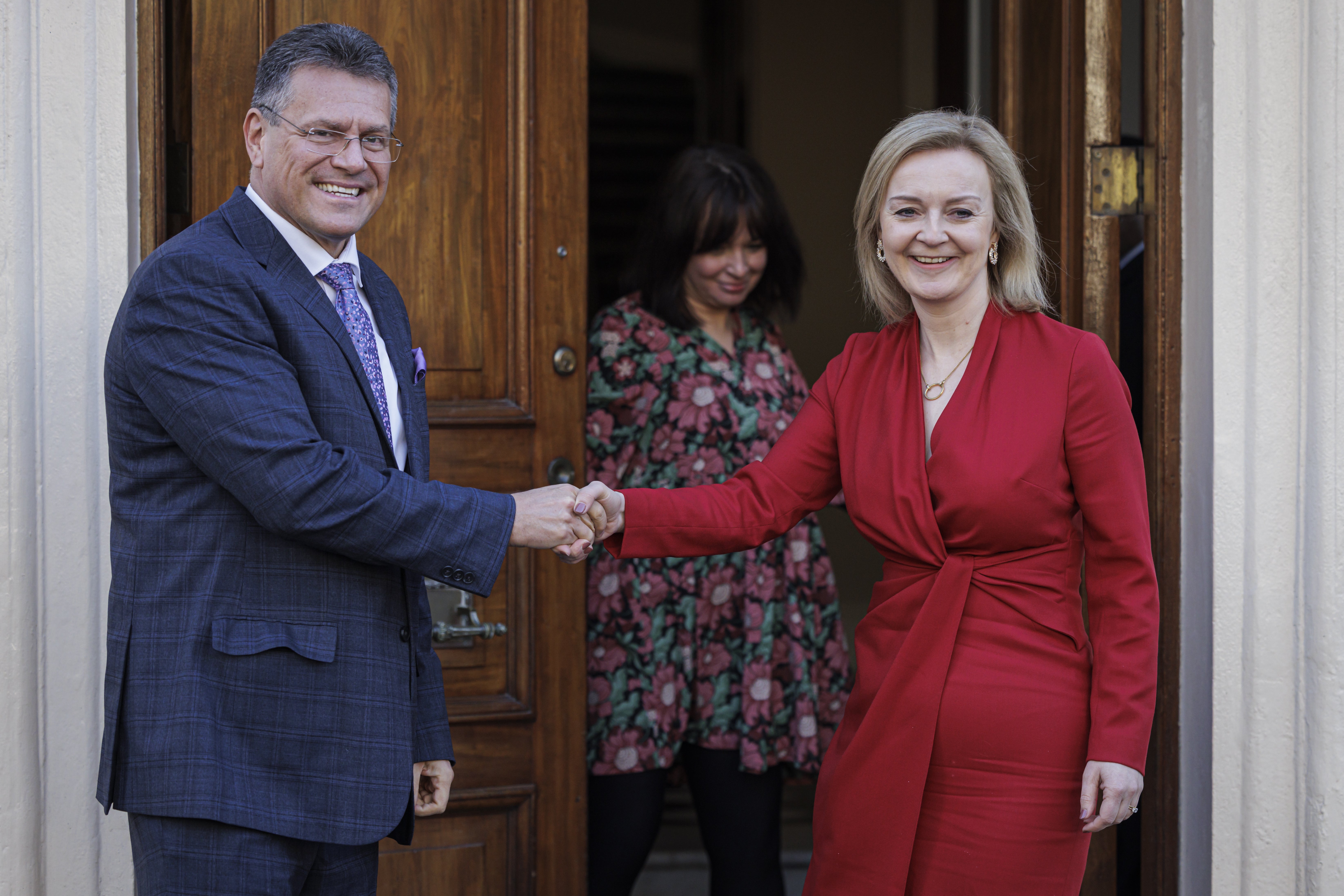What is happening to Brexit rules for Northern Ireland?
Liz Truss is said to have ordered officials to be ready to trigger Article 16. John Rentoul explains the context


Liz Truss, the foreign secretary, has told officials to be ready to trigger Article 16 from next week, in an attempt to force a deal with the EU over the Northern Ireland protocol, according to The Times. What is going on?
One theory is that Truss has realised her approach, which has been less confrontational than that of David Frost, is not working, so she has had to return to the threat of suspending (parts of) the protocol to try to make progress before the Northern Ireland assembly elections in May.
When she took over responsibility for the Northern Ireland negotiations in December – on the resignation of Lord Frost – she sounded as if she was going to adopt a more constructive tone. But the talks have made no visible progress since then.
The looming elections in Northern Ireland mean the situation is now urgent. As things stand, the Democratic Unionist Party (DUP) is heading for trouble. Recent opinion polls have put its share of the vote down by 10 percentage points since the last assembly elections five years ago, meaning that Sinn Fein, down only four points, would be the largest party and entitled to nominate the first minister.
Many of the DUP’s troubles are self-inflicted by its leadership crisis since Arlene Foster was ousted last summer. But the party has been pushed into an awkward corner by the unpopularity of the protocol among unionist voters, a block of whom have turned to Traditional Unionist Voice (TUV). The leader of TUV is Jim Allister, who defected from the DUP because it was too “soft”.
From the UK government’s point of view, the fragmentation of the unionist vote is a disaster: it is now divided between the DUP, the UUP (the former mainstream unionist party) and TUV. The unionists are unlikely to allow Michelle O’Neill of Sinn Fein to take the office of first minister, which means that Northern Ireland’s government would stay in its current state of semi-suspension.
Jeffrey Donaldson, now the DUP leader, hopes for a significant change to the protocol that would allow him and the UK government to claim a victory and rescue his party’s fortunes.
This is difficult for the government, because the protocol – which is part of the withdrawal agreement, the treaty by which the UK left the EU – was negotiated by Boris Johnson, and was proclaimed a wonderful deal by him at the time. However, Lord Frost has prepared the way, by admitting it is not working in the way that he and the prime minister expected.
To keep up to speed with all the latest opinions and comment sign up to our free weekly Voices newsletter by clicking here
This has attracted mockery from Remainers, who told them what was going to happen. But it is also partly genuine, in that the EU has insisted on a more bureaucratic interpretation of the protocol than the UK side expected. This means that the checks on goods going from the rest of the UK to Northern Ireland, which were supposed to be “light touch” and mostly happening online, have turned out to be intrusive.
So much so that a significant amount of Northern Ireland trade has been diverted from east-west – that is, with the rest of the UK – to north-south, with the Republic of Ireland. “Diversion of trade” is one of the conditions in Article 16 of the protocol that allow either side to suspend it. So the UK government does have a case, however embarrassing it may be for it to admit that it hadn’t foreseen the problem.
There are possible solutions, such as a veterinary agreement like that which the EU has with New Zealand, in which both sides certify that their rules are equivalent to each other.
Truss is obviously keen to do a deal. The question is whether the EU side wants to be constructive, or to continue to enjoy the UK government’s embarrassment at having negotiated such a poor deal in the first place.
Join our commenting forum
Join thought-provoking conversations, follow other Independent readers and see their replies
Comments